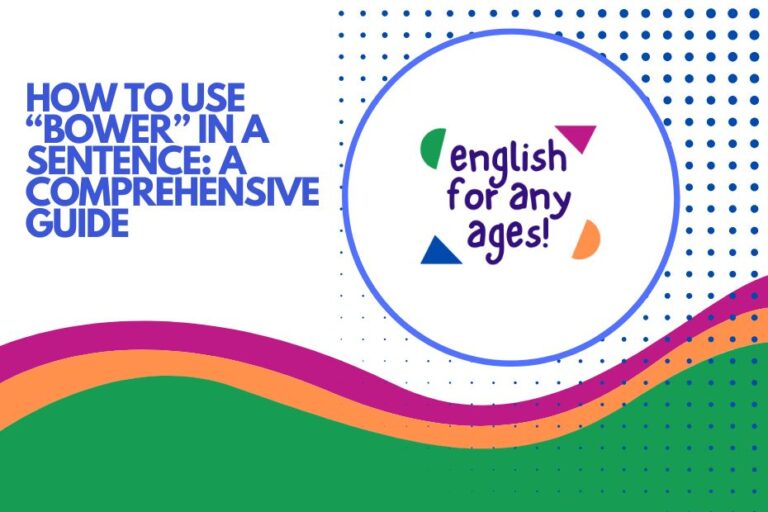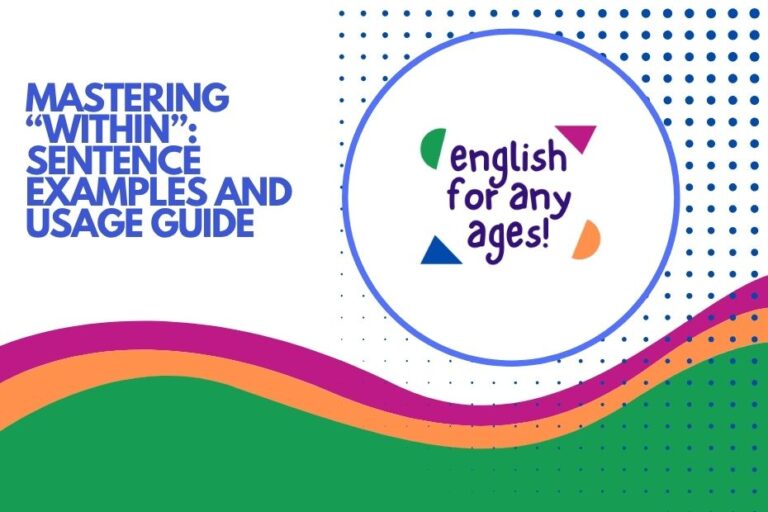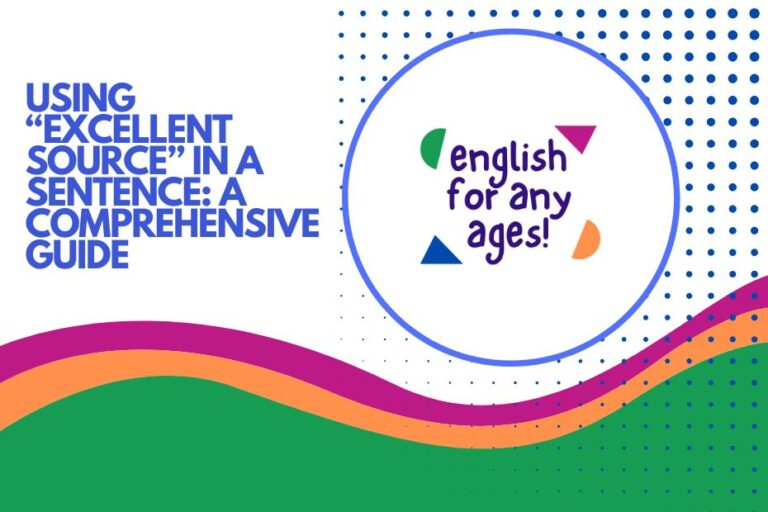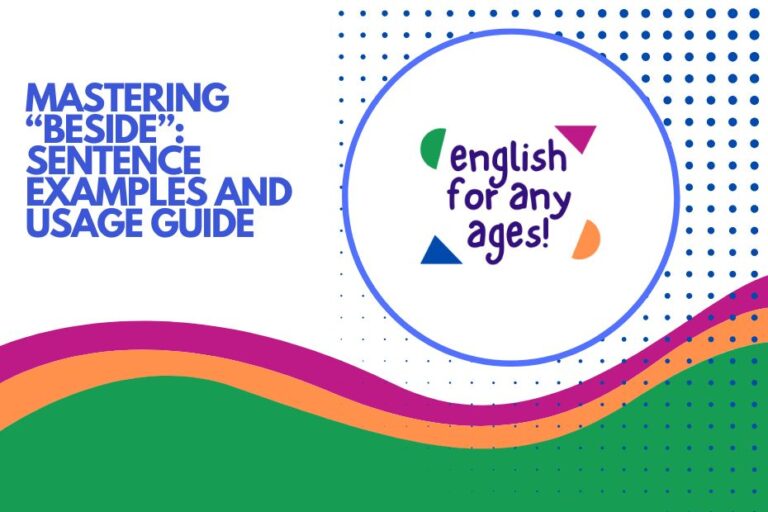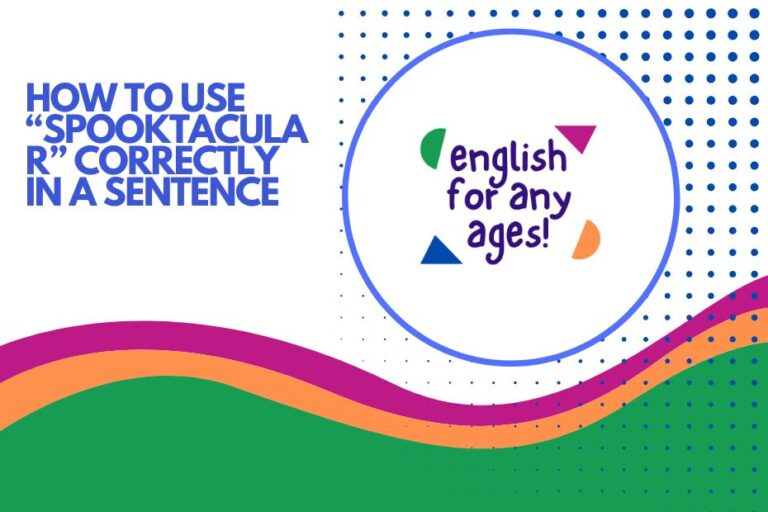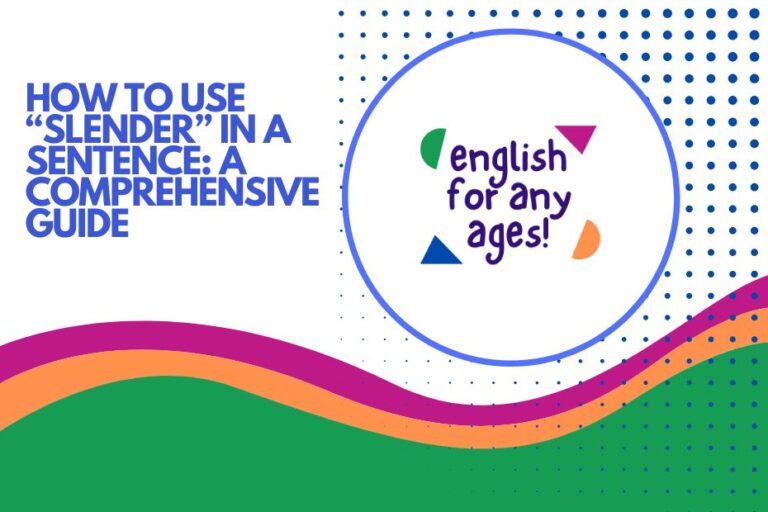How to Use “Publicity” in a Sentence: A Comprehensive Guide
Understanding how to use the word “publicity” correctly is crucial for effective communication, especially in fields like marketing, journalism, and public relations. “Publicity” refers to the dissemination of information to the public, often with the goal of creating awareness or shaping perception.
This article provides a comprehensive guide to using “publicity” accurately and effectively, covering its definition, grammatical structure, different types, usage rules, common mistakes, and advanced applications. Whether you’re a student, a professional, or simply someone looking to improve your English skills, this guide will equip you with the knowledge and practice you need to master the use of “publicity” in your writing and speech.
Table of Contents
- Definition of “Publicity”
- Structural Breakdown
- Types or Categories of Publicity
- Examples of “Publicity” in Sentences
- Usage Rules for “Publicity”
- Common Mistakes When Using “Publicity”
- Practice Exercises
- Advanced Topics
- Frequently Asked Questions (FAQ)
- Conclusion
Definition of “Publicity”
“Publicity” is a noun that refers to the dissemination of information to the public. It is often used to describe the process of making something known or attracting attention to a person, product, service, or organization. Publicity can be both positive and negative, depending on the nature of the information being shared and how it is received by the public. It plays a vital role in shaping public opinion and influencing consumer behavior.
In the context of marketing and public relations, publicity is often used as a tool to build brand awareness, promote products or services, and manage an organization’s reputation. It is typically achieved through various channels, such as press releases, media interviews, social media campaigns, and events.
The effectiveness of publicity depends on factors such as the target audience, the message being conveyed, and the credibility of the source.
The word “publicity” can also refer to the state of being known or recognized by the public. For example, a celebrity might enjoy a high level of publicity, meaning that they are frequently featured in the media and are well-known to the public.
In this sense, publicity can be seen as a measure of fame or notoriety.
Structural Breakdown
Understanding the structural elements of how “publicity” functions in a sentence is essential for its correct usage. “Publicity” primarily functions as a noun, and it can be used in several grammatical roles within a sentence.
Subject: “Publicity” can act as the subject of a sentence, indicating what the sentence is about. For example, “Publicity can be a powerful marketing tool.”
Object: “Publicity” can also serve as the direct or indirect object of a verb. For example, “The company sought publicity for its new product.”
Complement: “Publicity” can be a subject complement, describing or identifying the subject. For example, “Their main goal was publicity.”
Modifier: Although less common, “publicity” can function as a modifier, often in the form of an adjective. For example, “Publicity stunts can be risky.”
The word “publicity” is typically used with articles (a, an, the) or possessive pronouns (my, your, his, her, its, our, their) when it is specific. However, it can also be used without an article when referring to publicity in general. For example, “Publicity is essential for any business.”
Types or Categories of Publicity
Publicity can be categorized based on various factors, such as its nature, source, and intended effect. Understanding these different types can help you use the term more precisely and effectively.
Positive Publicity
Positive publicity refers to the dissemination of favorable information that enhances the reputation or image of a person, product, or organization. It is often the result of successful marketing campaigns, positive media coverage, or positive word-of-mouth. Examples include awards, endorsements, and positive reviews.
Negative Publicity
Negative publicity involves the spread of unfavorable information that damages the reputation or image of a person, product, or organization. It can arise from scandals, product recalls, negative reviews, or public criticism. Managing negative publicity is a crucial aspect of crisis communication.
Earned Publicity
Earned publicity is publicity that is gained through media coverage or word-of-mouth, rather than through paid advertising or sponsorships. It is often considered more credible and valuable than paid publicity because it is perceived as being more objective and unbiased.
Paid Publicity
Paid publicity refers to publicity that is obtained through paid advertising, sponsorships, or other forms of paid promotion. While it can be effective in reaching a large audience, it may be viewed as less credible than earned publicity.
Product Publicity
Product publicity focuses specifically on promoting a particular product or service. It can involve press releases, product reviews, demonstrations, and other marketing activities designed to generate awareness and interest in the product.
Corporate Publicity
Corporate publicity is broader and encompasses the overall image and reputation of a company or organization. It can involve public relations campaigns, corporate social responsibility initiatives, and efforts to communicate the company’s values and mission.
Crisis Publicity
Crisis publicity refers to the management of publicity during a crisis situation, such as a product recall, a scandal, or a natural disaster. It involves communicating with the public, addressing concerns, and taking steps to mitigate the damage to the organization’s reputation.
Examples of “Publicity” in Sentences
To illustrate the various ways in which “publicity” can be used in sentences, we’ll look at examples categorized by the grammatical function of the word.
“Publicity” as a Subject
In these examples, “publicity” acts as the subject of the sentence, performing the action or being described.
| Example | Explanation |
|---|---|
| Publicity is essential for a successful product launch. | “Publicity” is the subject, and the sentence states its importance. |
| Publicity can be both a blessing and a curse. | “Publicity” is the subject, indicating its dual nature. |
| Publicity often leads to increased sales. | “Publicity” is the subject, showing its effect on sales. |
| Good publicity is crucial for building a brand. | “Publicity” is the subject, emphasizing its importance for branding. |
| Publicity alone cannot guarantee success. | “Publicity” is the subject, highlighting its limitations. |
| Publicity surrounding the event was overwhelming. | “Publicity” is the subject, describing its intensity. |
| Unfavorable publicity can severely damage a company’s reputation. | “Publicity” is the subject, showing its negative impact. |
| Publicity campaigns are often carefully planned. | “Publicity” is the subject, noting the planning involved. |
| Online publicity is becoming increasingly important. | “Publicity” is the subject, indicating its growing significance. |
| Publicity generated by the scandal was immense. | “Publicity” is the subject, describing its scale. |
| Publicity from the charity event helped raise awareness. | “Publicity” is the subject, illustrating its positive impact. |
| Publicity surrounding the celebrity’s actions was intense. | “Publicity” is the subject, describing its intensity. |
| Publicity is a double-edged sword for politicians. | “Publicity” is the subject, highlighting its risks and benefits. |
| Publicity about the film was mostly positive. | “Publicity” is the subject, describing its positive nature. |
| Local publicity can be very effective for small businesses. | “Publicity” is the subject, emphasizing its effectiveness for local businesses. |
| Publicity often creates opportunities for networking. | “Publicity” is the subject, illustrating its networking benefits. |
| Publicity can be an expensive investment for startups. | “Publicity” is the subject, highlighting its costs for startups. |
| Publicity surrounding the new technology was widespread. | “Publicity” is the subject, describing its broad reach. |
| Publicity can help a non-profit organization reach more donors. | “Publicity” is the subject, showing its benefits for non-profits. |
| Publicity generated a buzz around the new product. | “Publicity” is the subject, describing the buzz it created. |
“Publicity” as an Object
In these examples, “publicity” serves as the direct object of a verb, receiving the action.
| Example | Explanation |
|---|---|
| The company sought publicity for its new product. | “Publicity” is the direct object of the verb “sought.” |
| They generated publicity through a viral marketing campaign. | “Publicity” is the direct object of the verb “generated.” |
| The politician received a lot of publicity after the speech. | “Publicity” is the direct object of the verb “received.” |
| The band needs more publicity to increase their fanbase. | “Publicity” is the direct object of the verb “needs.” |
| We are trying to attract publicity for our charity event. | “Publicity” is the direct object of the verb “attract.” |
| The author earned considerable publicity after winning the award. | “Publicity” is the direct object of the verb “earned.” |
| The organization aims to gain publicity through community outreach. | “Publicity” is the direct object of the verb “gain.” |
| The film studio created publicity with a star-studded premiere. | “Publicity” is the direct object of the verb “created.” |
| The scandal brought unwanted publicity to the company. | “Publicity” is the direct object of the verb “brought.” |
| The museum is utilizing social media to garner publicity. | “Publicity” is the direct object of the verb “garner.” |
| The small business owner craved publicity to grow the business. | “Publicity” is the direct object of the verb “craved.” |
| The influencer sought publicity by attending high-profile events. | “Publicity” is the direct object of the verb “sought.” |
| The athlete avoids publicity due to privacy concerns. | “Publicity” is the direct object of the verb “avoids.” |
| The chef received publicity for his innovative cooking techniques. | “Publicity” is the direct object of the verb “received.” |
| The artist gained publicity through online exhibitions. | “Publicity” is the direct object of the verb “gained.” |
| The entrepreneur wanted publicity for her groundbreaking invention. | “Publicity” is the direct object of the verb “wanted.” |
| The company generated publicity by sponsoring a local event. | “Publicity” is the direct object of the verb “generated.” |
| The researcher earned publicity for his important scientific discovery. | “Publicity” is the direct object of the verb “earned.” |
| The campaign aims to attract publicity through viral videos. | “Publicity” is the direct object of the verb “attract.” |
| The organization seeks publicity to increase donations. | “Publicity” is the direct object of the verb “seeks.” |
| The new restaurant is trying to get publicity through local magazines. | “Publicity” is the direct object of the verb “get”. |
| The author hopes to gain publicity with his controversial new book. | “Publicity” is the direct object of the verb “gain”. |
“Publicity” as a Complement
Here, “publicity” functions as a complement, providing more information about the subject of the sentence.
| Example | Explanation |
|---|---|
| Their main goal was publicity. | “Publicity” is the subject complement, describing the goal. |
| What they needed most was positive publicity. | “Publicity” is the subject complement, specifying the type needed. |
| The key to their success was consistent publicity. | “Publicity” is the subject complement, identifying the key factor. |
| For the small business, the greatest asset was publicity. | “Publicity” is the subject complement, indicating the greatest asset. |
| The ultimate aim of the campaign is publicity. | “Publicity” is the subject complement, stating the campaign’s aim. |
| The company’s strategy was to get as much publicity as possible. | “Publicity” is the subject complement, outlining the strategy. |
| The artist’s intention was certainly not negative publicity. | “Publicity” is the subject complement, clarifying the artist’s intention. |
| The politician’s desire was constant publicity. | “Publicity” is the subject complement, showing the politician’s desire. |
| The main focus of the event became publicity. | “Publicity” is the subject complement, indicating the event’s focus. |
| The result of their efforts was widespread publicity. | “Publicity” is the subject complement, describing the result. |
“Publicity” as a Modifier
In these cases, “publicity” acts as a modifier, typically functioning as an adjective to describe another noun.
| Example | Explanation |
|---|---|
| Publicity stunts can be risky. | “Publicity” modifies “stunts,” describing the type of stunts. |
| The company avoided publicity events after the scandal. | “Publicity” modifies “events,” specifying the type of events. |
| Publicity campaigns often require significant investment. | “Publicity” modifies “campaigns,” describing the type of campaigns. |
| The brand launched a publicity drive to promote its new product. | “Publicity” modifies “drive,” specifying the type of promotional effort. |
| The organization relies on publicity materials to raise awareness. | “Publicity” modifies “materials,” describing the type of materials used. |
| The celebrity’s publicity team worked tirelessly to manage her image. | “Publicity” modifies “team,” describing the type of team. |
| The marketing firm specialized in publicity strategies for startups. | “Publicity” modifies “strategies,” specifying the type of strategies. |
| The event provided a great opportunity for publicity exposure. | “Publicity” modifies “exposure,” describing the type of exposure. |
| The company created publicity videos to showcase its products. | “Publicity” modifies “videos,” specifying the type of videos. |
| Effective publicity management is crucial for maintaining a positive image. | “Publicity” modifies “management,” describing the type of management. |
Usage Rules for “Publicity”
To use “publicity” correctly, it’s important to follow these usage rules:
- Use the correct article: When referring to specific publicity, use “the.” When referring to publicity in general, no article is needed.
- Correct: The publicity surrounding the event was immense.
- Correct: Publicity is essential for any business.
- Choose the right verb: Common verbs used with “publicity” include “generate,” “seek,” “receive,” “gain,” “attract,” “avoid,” and “manage.”
- Consider the context: Determine whether you are referring to positive, negative, earned, or paid publicity, and use the appropriate modifiers to clarify.
- Avoid redundancy: Be mindful of using redundant phrases like “publicity campaign about publicity.” Instead, focus on the specific aspect of publicity you are referring to.
- Use correct prepositions: When describing the source or focus of publicity, use prepositions like “for,” “about,” or “from.”
- Correct: The company sought publicity for its new product.
- Correct: There was a lot of publicity about the celebrity’s actions.
- Correct: The organization received publicity from the charity event.
Common Mistakes When Using “Publicity”
Here are some common mistakes to avoid when using “publicity”:
| Incorrect | Correct | Explanation |
|---|---|---|
| The publicity was good to the company. | The publicity was good for the company. | Using the correct preposition is essential. |
| They need to do a publicity about their product. | They need to generate publicity about their product. | Using the correct verb and avoiding redundancy improves clarity. |
| The publicity is very important to success. | Publicity is very important to success. | Omitting the article when referring to publicity in general. |
| A publicity was generated by the event. | Publicity was generated by the event. | Omitting the article when referring to publicity in general. |
| The company is seeking a publicity. | The company is seeking publicity. | “Publicity” is generally uncountable in this context, so no article is needed. |
| The publicity campaign about publicity was successful. | The publicity campaign was successful. | Avoiding redundancy improves clarity. |
Practice Exercises
Test your understanding of “publicity” with these practice exercises. Fill in the blanks with the correct form of “publicity” or a related word.
Exercise 1
| Question | Answer |
|---|---|
| 1. The company launched a __________ campaign to promote its new product. | publicity |
| 2. The scandal brought __________ attention to the politician. | unwanted/negative |
| 3. __________ is essential for a successful business. | Publicity |
| 4. The band needs more __________ to increase its fanbase. | publicity |
| 5. The event generated a lot of positive __________. | publicity |
| 6. The organization is seeking __________ for its charity event. | publicity |
| 7. The author received __________ after winning the award. | publicity |
| 8. The company’s main goal is to gain __________. | publicity |
| 9. The film studio created __________ with a star-studded premiere. | publicity |
| 10. The museum is using social media to garner __________. | publicity |
Exercise 2
Rewrite the following sentences to use “publicity” more effectively.
| Question | Answer |
|---|---|
| 1. The company did a promotion for their new product. | The company launched a publicity campaign for their new product. |
| 2. The event got a lot of attention from the media. | The event generated a lot of publicity. |
| 3. The politician had bad attention after the scandal. | The politician received negative publicity after the scandal. |
| 4. The band wants more people to know about them. | The band needs more publicity to increase its fanbase. |
| 5. The charity is trying to get people to notice their event. | The charity is seeking publicity for its event. |
| 6. The author became well-known after winning the award. | The author received publicity after winning the award. |
| 7. The company’s goal is to make their brand more visible. | The company’s main goal is to gain publicity. |
| 8. The film studio made sure everyone knew about the premiere. | The film studio created publicity with a star-studded premiere. |
| 9. The museum is using social media to get more attention. | The museum is using social media to garner publicity. |
| 10. The business needs to get their name out there. | The business needs to generate publicity. |
Advanced Topics
For advanced learners, here are some more complex aspects of using “publicity”:
- Publicity vs. Advertising: Understand the key differences between publicity and advertising. While both aim to promote a product or service, publicity is earned through media coverage, while advertising is paid for.
- Publicity and Public Relations: Explore the relationship between publicity and public relations. Publicity is often a result of effective public relations strategies, which involve managing an organization’s communication with the public.
- Ethical Considerations: Consider the ethical implications of publicity, such as the responsibility to provide accurate information and avoid misleading or deceptive practices.
- Crisis Communication: Learn how to manage publicity during a crisis situation, including developing a communication plan, addressing concerns, and mitigating damage to the organization’s reputation.
Frequently Asked Questions (FAQ)
Here are some frequently asked questions about using “publicity”:
- What is the difference between publicity and advertising?
Publicity is earned media coverage, meaning it’s generated by news outlets or other third parties without direct payment. Advertising is paid media, where you pay for ad space to promote your message. Publicity is often seen as more credible because it’s not directly controlled by the advertiser. - How can I generate positive publicity for my business?
To generate positive publicity, focus on creating newsworthy content, such as announcing new products, sharing company milestones, participating in community events, or offering expert commentary on industry trends. Build relationships with journalists and media outlets, and distribute press releases to share your stories. - What should I do if my company receives negative publicity?
If your company receives negative publicity, it’s crucial to respond quickly and transparently. Acknowledge the issue, take responsibility if necessary, and outline the steps you’re taking to address the problem. Communicate clearly and honestly with the public and the media to mitigate the damage to your reputation. - Is publicity always a good thing?
While positive publicity is generally beneficial, negative publicity can be harmful. Even positive publicity can have unintended consequences, such as attracting unwanted attention or scrutiny. It’s important to carefully consider the potential impact of publicity before seeking it. - How can I measure the effectiveness of a publicity campaign?
The effectiveness of a publicity campaign can be measured through various metrics, such as media mentions, website traffic, social media engagement, and sales figures. Track these metrics before, during, and after the campaign to assess its impact and identify areas for improvement. - What role does social media play in publicity?
Social media has become an essential tool for generating and managing publicity. It allows you to directly communicate with your audience, share news and updates, and engage in conversations. Social media can also amplify the reach of your publicity efforts and help you control your brand narrative. - How do I write a good press release to get publicity?
A good press release should be newsworthy, concise, and informative. Start with a compelling headline, provide key information in the first paragraph, and include quotes from relevant sources. Use clear and concise language, and avoid jargon. Include contact information for media inquiries. - What are some ethical considerations when seeking publicity?
When seeking publicity, it’s important to be honest and transparent. Avoid making false or misleading claims, and disclose any conflicts of interest. Respect the privacy of individuals, and avoid exploiting sensitive information. Ensure that your publicity efforts are consistent with your company’s values and ethical standards.
Conclusion
Mastering the use of “publicity” in a sentence involves understanding its definition, grammatical functions, different types, usage rules, and common mistakes. By studying the examples and completing the practice exercises provided in this guide, you can improve your ability to use “publicity” accurately and effectively in your writing and speech.
Remember to consider the context, choose the right verb and prepositions, and avoid redundancy. With practice and attention to detail, you can confidently use “publicity” to communicate your message and achieve your goals.
Continue to expand your vocabulary and grammar skills by exploring other related topics, such as marketing terminology, public relations strategies, and media communication techniques. The more you learn, the more effective you will become in using language to shape perception and influence outcomes.
Keep practicing, and you will see significant improvements in your English proficiency.

